 |
Wrington Web Archive Brook House planning appeal Friday, 8th June, 2007 |
 |
Wrington Web Archive Brook House planning appeal Friday, 8th June, 2007 |
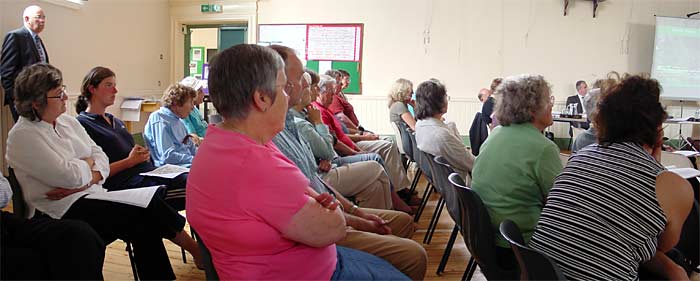 |
|||||||||||||||||||||
 |
|||||||||||||||||||||
| Friday's proceedings began with Simon Prescott of Barton Willmore for the appellants giving evidence on what he saw as the unsatisfactory way NSC policy had changed over the period of time his firm had been negotiating with them. In a hotly disputed interchange, he sought to adduce evidence that David Robbins' predecessor as Principal Planning Policy Officer, who had drafted the final version of the regulations under which planning permission had been refused, was allegedly of the opinion they were being interpreted more harshly than he had intended. He agreed with Richard Phillips that the interpretation of policy was at the heart of the appeal. He rejected Anthony Mason's argument that the major part of the Brook House site was not previously developed land, and that, indeed, it had been in agricultural use. |
|||||||||||||||||||||
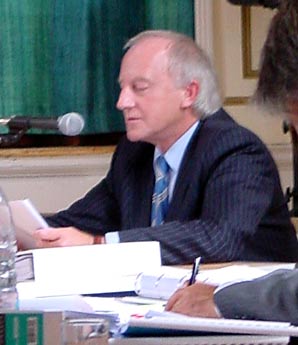 |
|||||||||||||||||||||
| The Chairman of the Wrington Residents' Group, John Rubidge put the case that the whole site was, and had historically been, divided by a stone wall, that both the appellants and NSC had grossly undervalued the site in terms of its unspoilt rural nature, its public amenity value, and the residential amenity it afforded to its neighbours. He illustrated his argument with a number of slides. |
|||||||||||||||||||||
 |
|||||||||||||||||||||
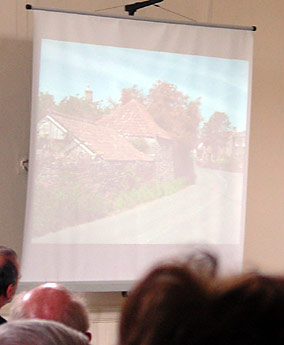 |
|||||||||||||||||||||
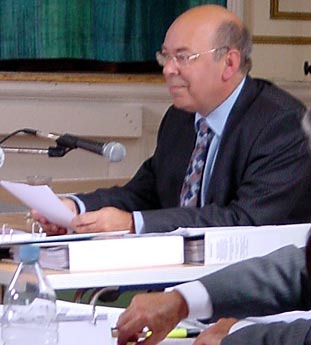 |
|||||||||||||||||||||
| WRG member Andy Tandy pursued the issues of biodiversity, arguing that the planned development must reduce it. | |||||||||||||||||||||
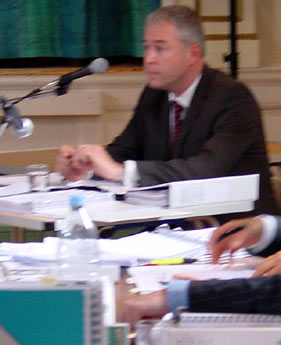 |
|||||||||||||||||||||
| The third WRG member to speak, Tim Gillions, looked at issues of sustainability, especially transport, local businesses, employment opportunities, and parking. | |||||||||||||||||||||
 |
|||||||||||||||||||||
| Echo Irving, Chair of Wrington Parish Council read a prepared statement from the Council, edited in the light of matters already exhaustively covered, and the rapidly increasing pressures of time brought about by the length of some submissions. The Inspector had indicated he would hear submissions from anyone else attending the hearing, and the first of these came from Shirley Bartlett, whose house adjoins the Brook House site. From her experience of 44 years living there, she gave evidence of having seen a horse being kept in the orchard for a number of years after her arrival. Georgie Bigg, a local resident and councillor nevertheless gave evidence as Chair of CPRE South-West. She supported many of the NSC contentions, especially in their relation to maintaining and enhancing quality of life in all villages. |
|||||||||||||||||||||
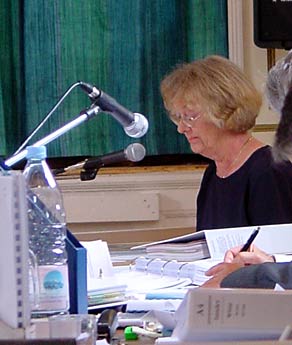 |
|||||||||||||||||||||
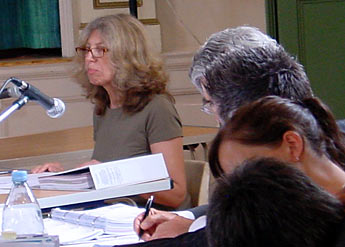 |
|||||||||||||||||||||
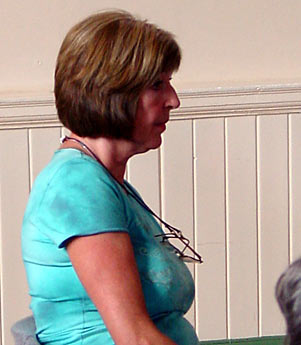 |
|||||||||||||||||||||
| Wendy Tandy supported the thrust of the objections, not as an immediate neighbour of the site, but as one concerned with the overall quality of life of the village. Dick Bartlett spoke of the loss of amenity he feared and asked the Inspector, when making his site visit, to look at the view from his property, the better to appreciate his fears. The Inspector invited any other resident similarly affected to invite him to their property. |
|||||||||||||||||||||
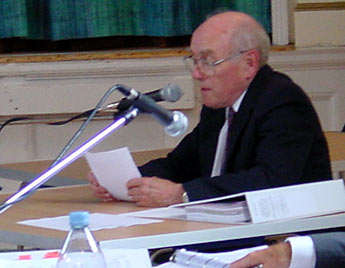 |
|||||||||||||||||||||
 |
|||||||||||||||||||||
| Jo Gillions spoke about the failing viability of local shops, and the doubt which hung over the future of rural post offices. She had been able to attend the inquiry for three days leaving one member of staff to serve. This would have been impossible even a few years ago. She rebutted the figures on job vacancies put forward by Roger Key. Pat Milne spoke from her experience as a teacher at Churchill Community School, where places were under severe pressure. She doubted Richard Phillips faith in the specific amounts the appellants were to contribute to the school as being capable of rectifying the situation. She spoke also of increasing rolls at Wrington Primary School. Alison Clark challenged the appellants' assumptions about the adequacy of parking on the proposed development, and offered them a sketch of revisions she had made - much to the delighted of the onlookers. |
|||||||||||||||||||||
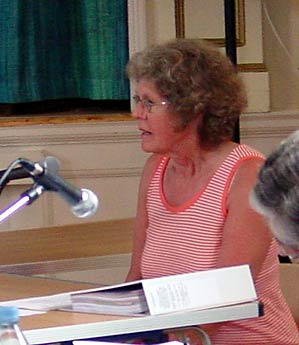 |
|||||||||||||||||||||
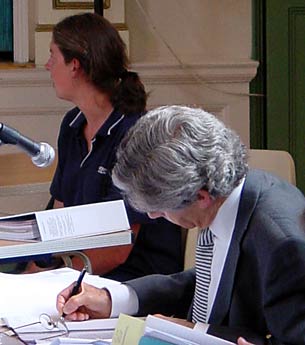 |
|||||||||||||||||||||
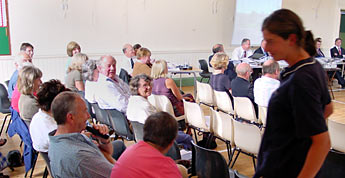 |
|||||||||||||||||||||
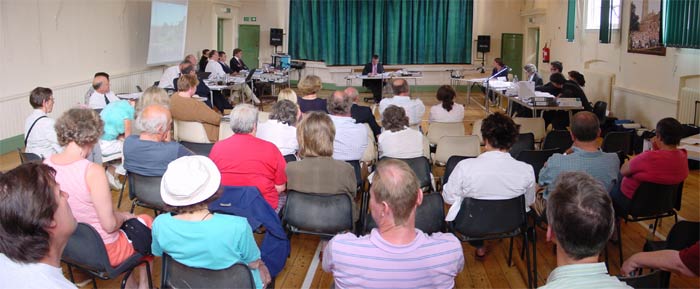 |
|||||||||||||||||||||
| Proceedings finally closed some time after the time of 5pm which had been the target. | |||||||||||||||||||||